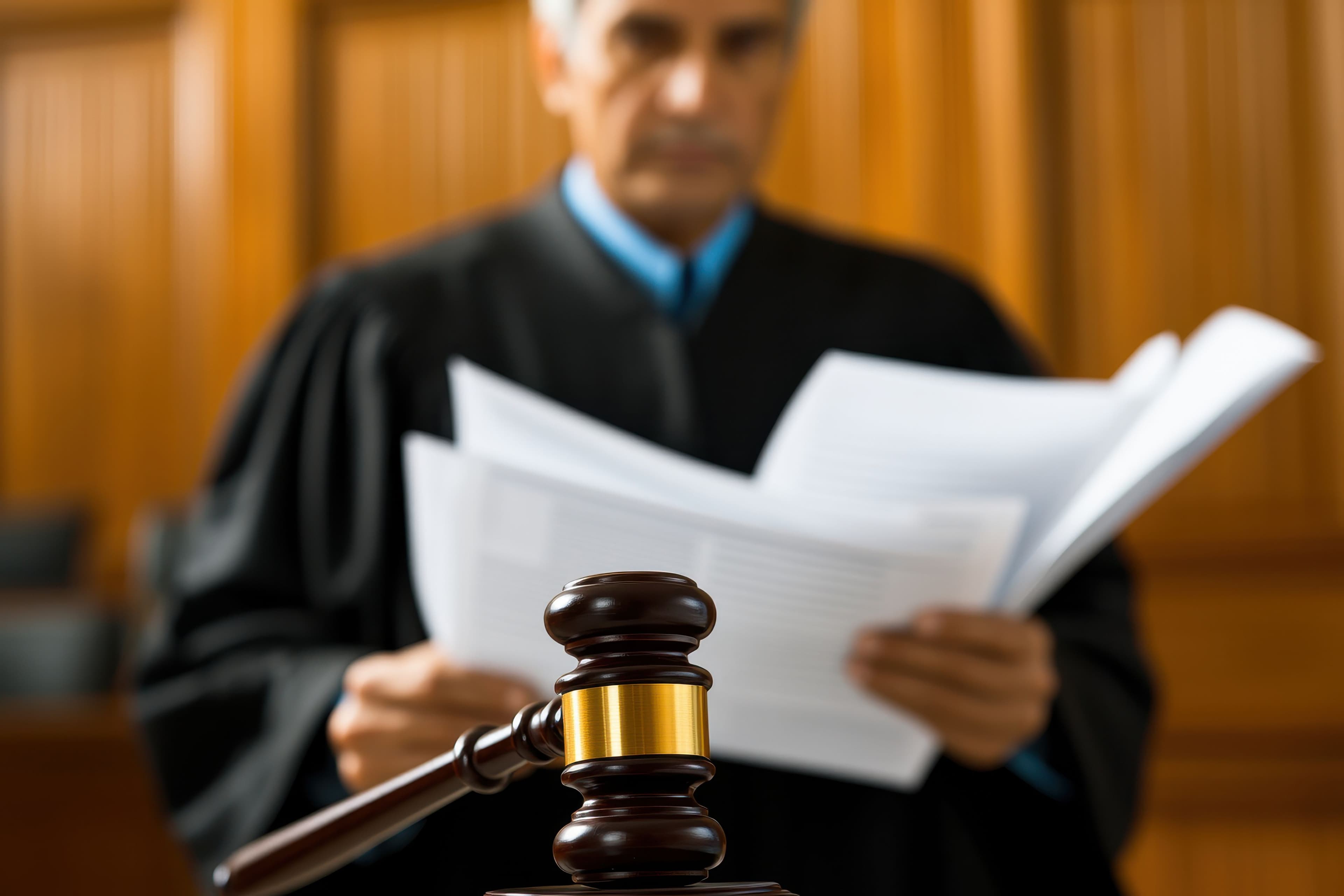
Subpoena

A subpoena is a written order that calls for a person to appear in court to testify or provide documentation related to a case. Different subpoenas are sent out to Americans every year, including witness and deposition subpoenas.
If you’ve ever been served with a subpoena, you know how much stress it can cause. A subpoena can send shivers down a person’s spine over the mere thought of having to appear in court. However, subpoenas play an extremely important part in the U.S. court system by making it mandatory for people to appear in court when they have information that can help push a case forward.
Not sure what a subpoena is? Since you’ll likely need to respond to or issue one in a case you’ve filed in court at some point, it’s a good idea to learn more about what subpoenas are. Discover the definition of a subpoena below before finding out other things people should know about one.
What Is a Subpoena?
A subpoena is a written order requiring someone to make a court appearance so that they can either testify or provide documentation related to an ongoing court case. Subpoenas are often sent out to people in the weeks leading up to the start of a court case, letting them know they’ll need to prepare to appear in court.
Here are several pieces of information included in one:
- The name of the court that has issued the subpoena
- Contact information for the person who sent it
- The names of those involved in a court case
- The docket number for a court case
A subpoena will also usually reveal when and where a person must make a court appearance. Those who receive one must respond to it within a set period to avoid legal complications.
Contact our team today so we can fight to help you get the compensation you deserve.
How Are Subpoenas Used?
The word subpoena comes from the Latin meaning “under penalty.” Subpoenas are used to bring forward the different people that judges and attorneys would like to participate in a court case, usually for the purposes of providing necessary information or testimony known only to the one being served.
If, for example, someone files a personal injury lawsuit, such as a car accident lawsuit, both the plaintiff and defendant involved in the case can call whoever they would like to testify in an attempt to advance their arguments. A car accident lawyer might reach out to eyewitnesses of an accident or others involved in a crash to provide testimony supporting their legal claim.
What Are the Different Types of Subpoenas?
Those within the U.S. legal system utilize a few different types of subpoenas. Understanding what each is used for is imperative for those filing legal claims and participating in their hearings.
Here are the three main types:
- Witness subpoena: A court order that calls for a person to appear in court and provide testimony while under oath on a specific date and time
- Subpoena duces tecum: A court order that calls for a person to provide a court with documentation by a specific date and time
- Deposition subpoena: A court order that calls for a person to answer questions from those involved in a court case during a deposition outside of a courtroom
There is a big difference between receiving a subpoena requiring you to appear in court to take the stand during a lawsuit so that an accident attorney can ask you questions and receiving one asking you to supply documentation. Pay close attention to what a subpoena says for more information on how you should respond.
If you’re unsure what a subpoena is asking you to do or how to respond, you can call the court directly for more information. It also doesn’t hurt to consult an attorney. You don’t want to accidentally disobey the order and face legal consequences.
Free Consultation 24/7, call (844) 343-9609
Who Has the Legal Authority To Send Subpoenas?
More often than not, attorneys are the ones who send out subpoenas while working on court cases. In doing so, they’re attempting to create the strongest cases possible by calling on as many people to testify on behalf of their clients as they can. This is standard procedure, not a scare tactic.
However, attorneys aren’t the only ones with the legal authority to send out subpoenas. Others can do it, too, including the following:
- Judges and magistrates
- Court clerks and administrators
- Administrative agencies
All of these entities want to gain as much information as possible about the legal cases they are overseeing or serving on.
No matter who you might receive one from, you should always take a subpoena seriously and follow the instructions included in it.
Call (844) 343-9609
What Happens If Someone Ignores a Subpoena From an Accident Lawyer or Another Entity?
Ignoring a subpoena is inadvisable, to say the least. Not acknowledging one and failing to appear in court or provide the requested documentation hinders the pursuit of justice and can come with harsh consequences.
If a person chooses to ignore a subpoena, they can be held in contempt of court, leading to fines, jail time, and other penalties. For those who are at the center of a court case, such as defendants in personal injury cases, ignoring a subpoena can also cause them to miss the opportunity to earn a fair judgment in court. Some subpoenas will lead to default judgments when ignored.
Additionally, ignoring one can subject someone to legal fees, especially when deciding not to respond to it, which leads to the expenses related to its enforcement. For these reasons, people should always prepare to respond to subpoenas as quickly as possible.
About Accident Hotline
Accident Hotline has become people’s go-to source for personal injury attorneys. If you would like to hire someone to help you file a personal injury claim and send a subpoena to one or more parties, let us help you find a lawyer experienced in handling your type of case.
We have a trusted network of attorneys across the country who have in-depth experience navigating a wide range of personal injury cases. Contact us at (844) 343-9609 today to speak with a knowledgeable representative.
For a free consultation, call (844) 343-9609
Get an agent on the line in seconds
Responsive
Legal Assistance
Our personal injury attorneys advocate for the funds necessary to cover bills, secure medical treatment, recoup lost wages, and provide compensation for your pain and suffering.
Are you facing unfair treatment from the insurance company?
Do you know the value of your case?
Is the insurance company asserting that the accident is your responsibility?

We'll get back to you ASAP.
Get Your Free Consultation
You Pay Nothing Unless We Recover Compensation For You
